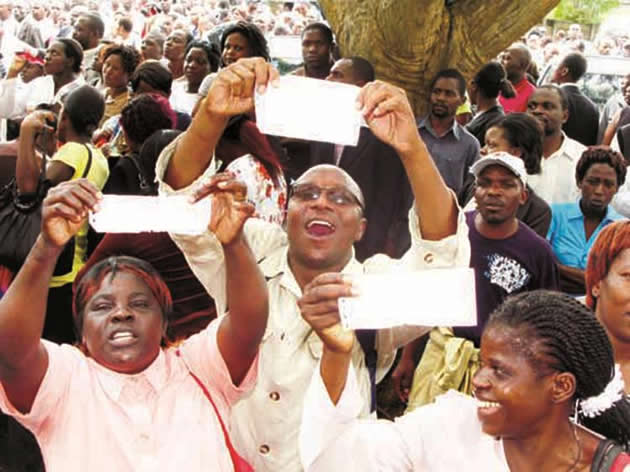EDITORIAL COMMENT: Govt, workers must maintain dialogue

 We commend Government and its workers’ representatives for being able to share the negotiating table this week to discuss the challenges regarding delayed payment of salaries and bonuses and pension deductions. We believe that is how it should be.
We commend Government and its workers’ representatives for being able to share the negotiating table this week to discuss the challenges regarding delayed payment of salaries and bonuses and pension deductions. We believe that is how it should be.
The outcome may not have been the best for either side, but we believe negotiations are a better way of settling a dispute than confrontation and industrial action, which often tend to have wider implications beyond the parties directly affected.
Teachers had threatened to go on strike if they did not get their bonuses. During the negotiations they also demanded specific dates for the payment of their salaries and future bonuses. They also want Government to stop making pension deductions on their salaries, which are already below the Poverty Datum Line.
All these are legitimate demands to the extent that Government has not been entirely forthcoming with its books.
There is no doubt that revenues are low and demands on the fiscus are greater than they have ever been, given the pressures presented by an imminent drought and the need for massive food imports. These are things which should be explained in the dialogue process.
With all the cards on the table, the workers should be able to temper their demands accordingly.
What has happened so far is that Government workers felt their employer was not telling them the whole truth; that they were being taken for granted and that there were enough financial resources to get them paid if they pushed hard enough, including reserving the right to strike if their dues were not forthcoming.
It must be appreciated that the civil servants have responsibilities and obligations outside their work stations. They need to make plans about the future, pay school fees and pay rentals.
Most, if not all, had made their budget estimates based on their expected net, which must have induced a sense of shock when they discovered that a 7,5 percent pension deduction had been effected on their pay without prior notice or discussion.
We believe Government can do better than that, if for nothing else, at least to maintain mutual trust and goodwill.
That is why Government must explain its financial position in advance whenever that is possible. What that does in the long term is to avoid reacting to threats and ultimatums of strike action.
It is in this light that we feel the civil servants are driving their bargain too hard. True, it is possible to negotiate the issue of pension deductions. It is also not unreasonable to want to be assured of regular timely salary payments. We, however, find it insensitive in the current circumstances to demand what amounts to a written commitment that future salaries will be paid on a specific date and a guarantee on bonuses.
The Government is caught between the proverbial rock and a hard place. The imminent drought can only compound the situation. That means more of the little revenue coming its way will have to be diverted to meet this critical national exigency.
We don’t want to believe there are people who adopt the attitude that dealing with a drought situation is entirely for Government.
We are all in it as a nation.
For civil servants to then try to extract a sealed commitment on salary payment dates plus bonus at the end of the year in the face of uncertain revenues is going a bit too far, we believe. In the end, the workers will turn around and accuse their employer of failing to keep his commitment or dealing with them in bad faith.
Such a situation should be avoided at all costs. What we urge is for both parties to maintain the spirit of dialogue. That should ensure commitment to duty on the part of the civil servants while Government does its best to meet their expectations, instead of spending valuable time fire-fighting.









Comments